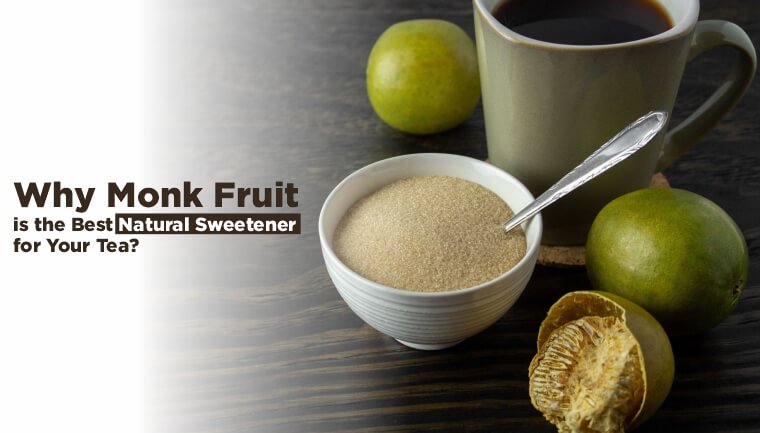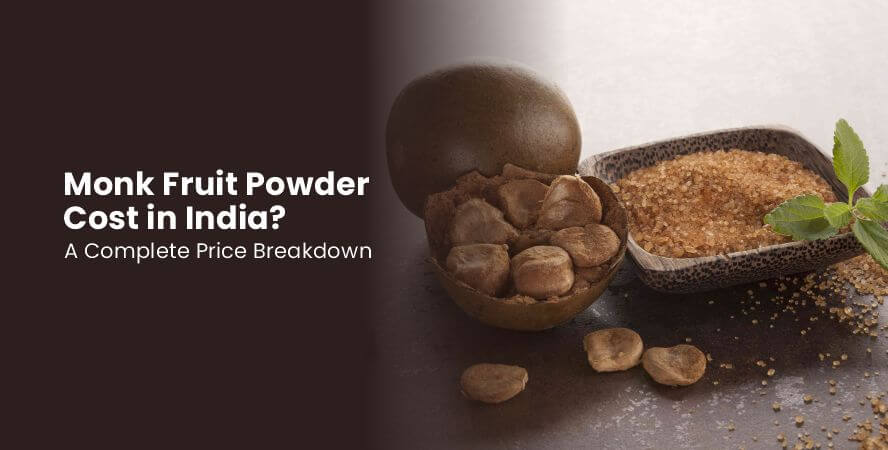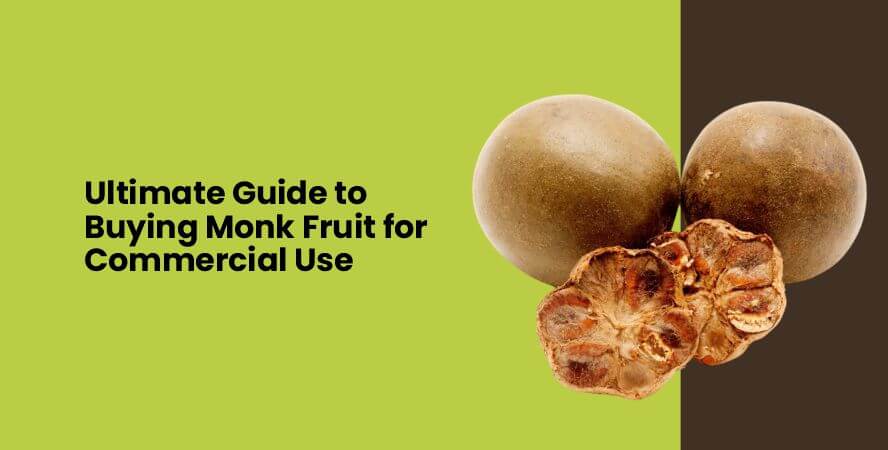An increasingly popular natural sweetener with no calories is monk fruit sweetener, which comes from the fruit of Siraitia grosvenorii, which is also known as monk fruit or Luo Han Guo. Monk fruit has been used in traditional Chinese medicine for hundreds of years. It is now praised for its health benefits and promise as an alternative to sugar. This blog talks about how monk fruit sweetener is different from other sweets and how it is good for your health.
List of Top Health Benefits of Monk Fruit Sweetener
1. Nutritional Profile of Monk Fruit Sweetener
Because it is healthy, monk fruit sugar is one of a kind. Of course, the fruit has natural sugars, but the sweetness comes from mogrosides, which are beneficial glycosides. People’s bodies break down these chemicals differently than regular sugars, which helps explain why monk fruit is low in calories.
a) Zero Calories
One great thing about monk fruit flavoring is that it makes things sweet without adding calories. The low number of calories makes it a good choice for people who want to reduce sugar without giving up sweetness.
b) Low Glycemic Index
The glycemic index of monk fruit sweetness is low, which means it doesn’t make blood sugar drop quickly. This is especially helpful for people with diabetes or who are watching their blood sugar levels.
c) Antioxidant Properties
Monk fruit has mogrosides, which are antioxidants that can help fight oxidative stress and lower inflammation in the body. Free radicals can hurt cells, and antioxidants are essential to protect them.
2. Benefits of Weight Management
Monk fruit sweetener can help you control your weight. Here’s how:
a) Reducing Caloric Intake
Because monk fruit sweetener has no calories, replacing sugar with it can help you eat fewer calories. This might help people who want to lose weight or maintain it.
b) Satisfying Sweet Cravings
Many people can’t keep the weight off when they want sweets. Sticking to a healthy diet is easier when using monk fruit sugar. It gives you the sweetness you want without the extra calories.
c) Preventing Overeating
Blood sugar levels can go up and down when you eat sugary foods, which can make you hungry and make you overeat. Monk fruit sweetness helps keep blood sugar levels more stable, which may make it less likely that you will overeat.
3. Diabetes Management
People with diabetes need to keep an eye on their blood sugar levels. In this case, monk fruit sweetener has several advantages:
a) Low Glycemic Response
Monk fruit sweetener doesn’t make blood sugar levels rise significantly. Because of this, it’s a good option for people with diabetes who must monitor how much carbs they eat.
b) Insulin Sensitivity
Monk fruit sweetener may make insulin work better, according to some tests. Making the body more sensitive to insulin can help it use insulin better, which is good for controlling diabetes.
c) Reducing the Risk of Complications
Monk fruit sweeteners can lower the risk of complications from diabetes by helping to keep blood sugar levels stable. These consequences can include heart disease and neuropathy.
4) Anti-Inflammatory and Antioxidant Benefits
Researchers have looked into the anti-inflammatory and antioxidant qualities of monk fruit’s mogrosides, which help with several health issues:
a) Reducing Inflammation
People who have heart disease, cancer, or autoimmune diseases are more likely to have chronic inflammation. The anti-inflammatory qualities of monk fruit can help lower inflammation and improve health in general.
b) Combating Oxidative Stress
When there are too many free radicals and insufficient antioxidants in the body, oxidative stress happens. In monk fruit sweeteners, antioxidants help fight free radicals, which protect cells from damage and lower the risk of chronic illnesses.
c) Supporting Immune Function
Monk fruit sugar can help keep your immune system healthy by lowering oxidative stress and inflammation. You need an immune system that works well to avoid and fight infections and diseases.
5) Digestive Health
Monk fruit sweeteners can also help your digestive system in several ways, including:
a) Prebiotic Potential
According to some studies, monk fruit may have prebiotic qualities, which means it can help good bacteria grow in the gut. A good gut microbiome is essential for health, digestion, and absorbing nutrients.
b) Reducing Digestive Discomfort
Monk fruit sweeteners are usually well tolerated, unlike artificial sweeteners that can upset your stomach with gas and bloating. This makes it a good choice for people whose gut systems are sensitive.
c) Managing Symptoms of IBS
People who have irritable bowel syndrome (IBS) often need to stay away from sugars that can make their symptoms worse. Because it is low in FODMAPs (fermentable oligosaccharides, disaccharides, monosaccharides, and polyols), monk fruit sugar is a good choice for people with IBS.
6) Oral Health
Monk fruit sweetener is good for your teeth, unlike sugar, which can cause cavities and tooth decay:
a) Preventing Tooth Decay
Monk fruit sugar doesn’t feed the germs in your mouth that worsen cavities. This can help keep your teeth healthy and stop cavities.
b) Reducing Plaque Formation
Some studies show that monk fruit sugar might help keep plaque from building up on teeth. An accumulation of plaque can cause gum disease and other problems with your mouth health.
c) Freshening Breath
Because it doesn’t cause bad breath, monk fruit sweetener is an excellent choice for sugar in toothpaste and mouthwash in the bathroom.
The Bottom Line
Monk fruit sweetener is a natural sweetener with no calories and many health benefits. It’s a better choice than sugar and artificial sweeteners, so it’s great for managing weight, diabetes, and general health. Its anti-inflammatory and antioxidant benefits help the immune system work, and its prebiotic potential is good for digestive health. You can easily add monk fruit flavoring to many different recipes and drinks because it is gentle on your teeth and tastes great. You can enjoy sweetness without hurting your health if you know what it’s good for and how to use it.









